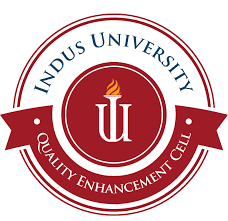M.Sc. Microbiology graduates have promising career prospects in healthcare, pharmaceuticals, biotechnology, food industry, and research institutions. They contribute to disease diagnostics, vaccine development, environmental protection, and bioprocessing.
Future Scope & Benefitsfor M.Sc. in Microbiology Course
A Master of Science (M.Sc.) in Microbiology is a postgraduate program that delves into the world of microorganisms, studying their biology, genetics, ecology, and applications. Microbiology plays a crucial role in various industries, from healthcare and pharmaceuticals to agriculture and biotechnology. The future scope and benefits of pursuing an M.Sc. in Microbiology.
Future Scope of an M.Sc. in Microbiology Degree
The future scope of an M.Sc. in Microbiology is promising. Graduates can pursue careers in research, pharmaceuticals, biotechnology, healthcare, and environmental science. With the growing demand for microbiologists to address issues like infectious diseases, antibiotic resistance, and food safety, this degree offers ample opportunities to contribute to science and society while enjoying a fulfilling career.
-
Medical Microbiology: Microbiologists in the field of medical microbiology work in clinical laboratories, hospitals, and research institutions. They are involved in diagnosing infectious diseases, studying antibiotic resistance, and developing new treatments and vaccines. With the emergence of new pathogens and infectious disease challenges, the demand for medical microbiologists is expected to remain high.
-
Biotechnology and Pharmaceutical Industry: Microbiology is at the heart of biotechnology and pharmaceutical research. Graduates can find opportunities in research and development, quality control, and regulatory affairs. They contribute to the development of biopharmaceuticals, genetically engineered microorganisms, and novel therapies.
-
Environmental Microbiology: Environmental microbiologists study the role of microorganisms in ecosystems, water treatment, and waste management. They play a crucial role in environmental monitoring and bioremediation projects aimed at cleaning up polluted environments. As environmental concerns grow, so does the demand for experts in this field.
-
Food and Beverage Industry: Microbiologists ensure the safety and quality of food and beverages. They work in food testing laboratories, breweries, and food production facilities. Their expertise is vital in preventing foodborne illnesses and improving food preservation techniques.
-
Agriculture and Plant Microbiology: Microbiologists in agriculture focus on soil health, plant-microbe interactions, and crop protection. They develop sustainable agricultural practices, biofertilizers, and biopesticides, contributing to food security and environmentally friendly farming.
-
Pharmaceutical Microbiology: Pharmaceutical microbiologists are responsible for maintaining the sterility and quality of pharmaceutical products. They conduct microbial testing of pharmaceutical raw materials and finished products to ensure compliance with regulatory standards.
-
Academia and Research: Many M.Sc. in Microbiology graduates choose to pursue Ph.D. programs and enter academia. They become professors, lecturers, or research scientists, conducting cutting-edge research and mentoring future microbiologists.
-
Public Health and Epidemiology: Microbiologists can work in public health agencies, tracking disease outbreaks, conducting epidemiological studies, and implementing control measures. The recent COVID-19 pandemic highlighted the crucial role of epidemiologists and public health microbiologists.
Benefits of Pursuing an M.Sc. in Microbiology
Pursuing an M.Sc. in Microbiology offers numerous benefits. It provides in-depth knowledge of microorganisms, fostering a deep understanding of infectious diseases, biotechnology, and environmental microbiology. Graduates have diverse career opportunities in research, healthcare, pharmaceuticals, and food safety. Microbiologists play a crucial role in addressing global health challenges, making this degree rewarding and impactful.
-
Specialized Knowledge: The program provides in-depth knowledge of microorganisms and their applications, making graduates highly specialized in their field.
-
Research Skills: Students develop strong research skills, including laboratory techniques, data analysis, and critical thinking, which are valuable in various professions.
-
Diverse Career Options: Microbiology graduates can choose from a wide range of career options across industries, making it a versatile degree.
-
Global Relevance: Microbiology is a global science, and microbiologists can work on international projects, collaborate with experts worldwide, and address global challenges such as infectious diseases and environmental issues.
-
Problem Solving: Microbiologists are trained to identify and solve complex microbial problems, making them adept at addressing real-world challenges.
-
Contribution to Society: Many careers in microbiology have a direct impact on society, whether through healthcare advancements, food safety, or environmental conservation.
 2 Years
2 Years
 Post Graduate
Post Graduate
 Science
Science














 back
back

